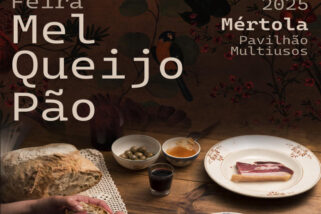 The Left Bloc (BE) presented to the Assembly of the Republic a bill that regulates the installation of intensive crops and requires an Environmental Impact Assessment to be carried out.
The Left Bloc (BE) presented to the Assembly of the Republic a bill that regulates the installation of intensive crops and requires an Environmental Impact Assessment to be carried out.
According to the BE parliamentary group, âThis initiative has a particular impact on Alentejo, namely in the irrigation perimeters of Alqueva and Miraâ. The Block argues that monocultures provide space for damage and losses caused by pests and diseases, droughts and other extreme events that are worsened by climate change.
It maintains that the most popular example with the greatest and fastest territorial expression is the intensive and super-intensive olive grove in Alentejo, now accompanied by almonds, with similar features.
Olive and almond trees, forming fences are planted at a density 1.500 feet per hectare when in the traditional method this value is lower than 300. This new form of production allows total mechanization, namely the harvesting process, which often occurs day and night.
In the area of ââAlqueva, the implementation of almond rose 975 hectares in 2015 To the 15 thousand hectares in 2020, currently representing 14% of the irrigated area. Olival occupied 13 thousand hectares in 2012 and 69 thousand hectares in 2020, currently representing 61% of the irrigated area.
The Bill presented by the Left Bloc intends to initiate a process of regulating the installation of intensive and super-intensive permanent agricultural crops throughout the country; greenhouse growing areas, tunnels and greenhouses across the country; and most crops in all areas benefiting from public hydro-agricultural developments. It also creates an agricultural registry and mandatory Environmental Impact Assessment and licensing in large areas of intensive production.


























